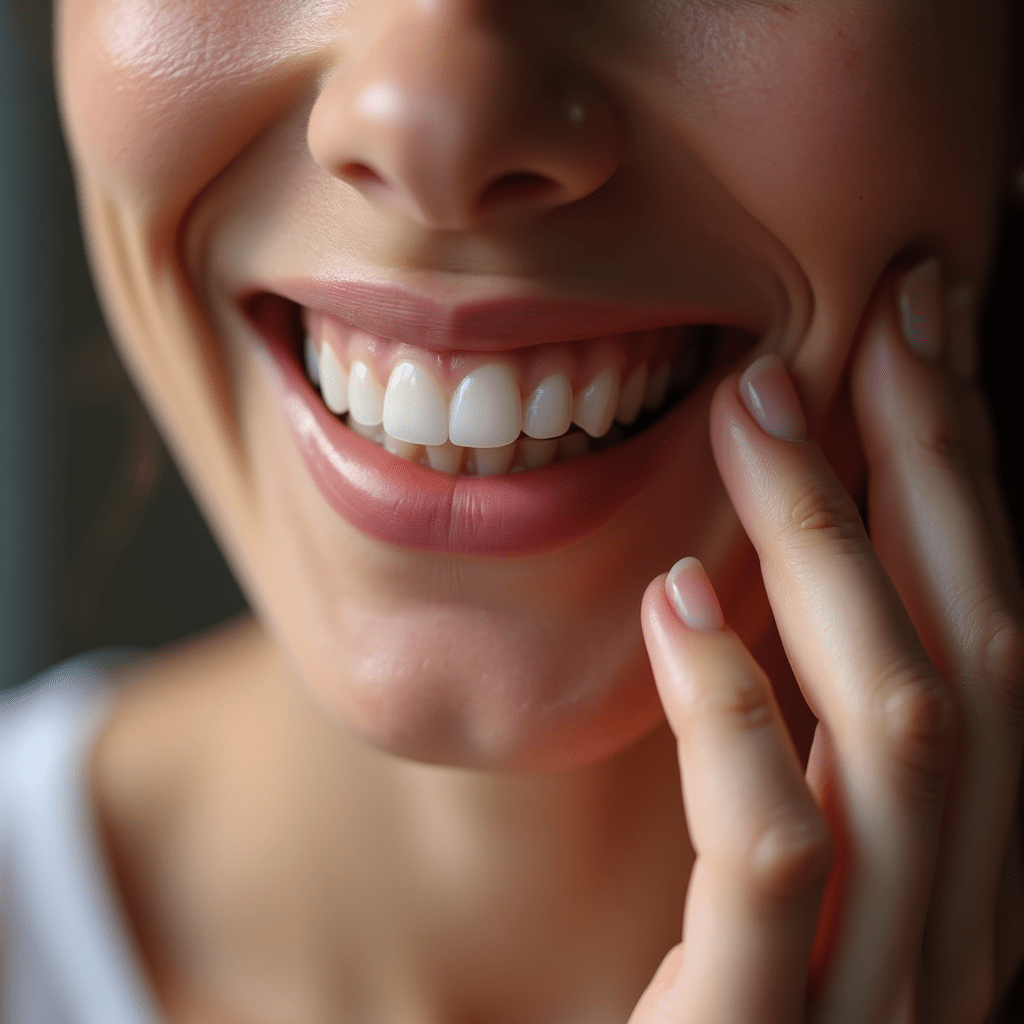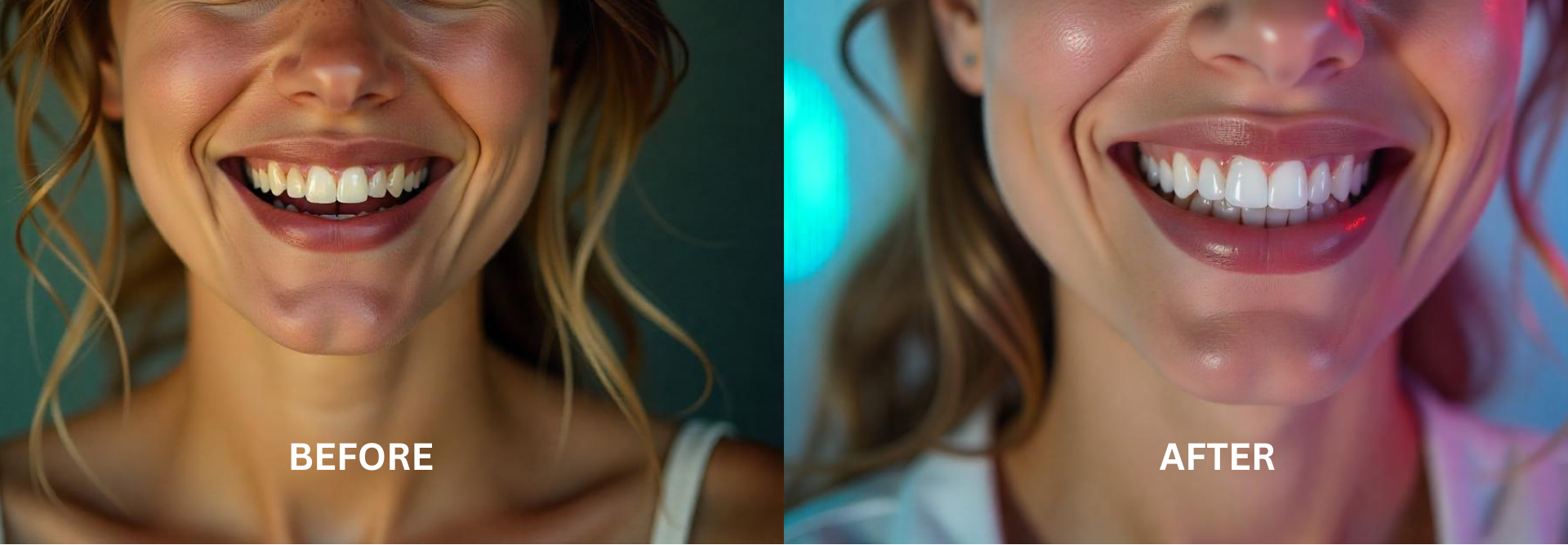If you recently got veneers and are wondering, “Why do my veneers feel sensitive after getting them?”, you’re not alone. Many patients experience some degree of sensitivity following the procedure. Understanding why dental veneers feel sensitive, how long this sensitivity lasts, and what you can do about it is essential for maintaining your comfort and protecting your investment in your smile.
In this guide, we’ll explore the common reasons behind veneer sensitivity, how to manage it, and when to seek professional care.
What Are Veneers and Why Are They Popular?
Veneers are thin, custom-made shells—usually made from porcelain or composite resin—that cover the front surface of your teeth. They’re designed to improve the appearance of your smile by correcting issues such as discoloration, chips, gaps, or minor misalignments. Veneers are a popular cosmetic dental treatment because they offer a natural-looking, durable, and stain-resistant solution to achieve a picture-perfect smile.
Why Do Veneers Feel Sensitive After Getting Them?
1. Enamel Removal During Preparation
One of the main reasons veneers feel sensitive is due to the enamel removal process. To fit veneers properly, your dentist needs to remove a small layer of enamel from the surface of your teeth. This step is necessary to ensure the veneers sit flush and look natural. However, enamel serves as a protective barrier for your teeth, and its removal can expose the underlying dentin—a layer filled with tiny nerve endings.
When dentin is exposed, it can make your teeth more sensitive to temperature changes, pressure, and certain foods or drinks. This sensitivity is your nerves responding to stimuli that previously would not have reached them through the enamel.
2. The Bonding Process Can Irritate Teeth
The process of bonding veneers to your teeth involves the use of special adhesives and sometimes etching agents. These materials can temporarily irritate the tooth structure and surrounding gum tissue, contributing to a sensation of sensitivity.
3. Bite Changes and Pressure Sensitivity
After veneers are placed, your bite may feel slightly different. If your veneers are not perfectly aligned with your natural bite, this can create areas of increased pressure when chewing or biting. Pressure on these areas can cause discomfort or sensitivity.
4. Temporary Sensitivity is Normal
It’s important to note that some degree of sensitivity is normal and expected after getting veneers. The nerves in your teeth and gums are adjusting to the new restorations and the changes in your bite and oral environment.
How Long Does Veneer Sensitivity Last?
For most patients, sensitivity after veneers is temporary and typically subsides within a few days to a few weeks. As your teeth and gums heal, the nerve endings become less reactive, and your mouth adjusts to the new veneers.
However, some people may experience sensitivity for several months– especially if their bite needs adjustment or if there was more extensive enamel removal.
If your veneers feel sensitive for more than two weeks, or if the pain is severe or worsening, it’s crucial to consult your dentist promptly to rule out issues such as improper fit, infection, or other complications.
What Foods and Habits Can Make Veneer Sensitivity Worse?
Certain foods and habits can exacerbate sensitivity, especially during the initial healing phase:
- Hot or cold beverages: Extreme temperatures can trigger sharp sensitivity.
- Acidic foods: Citrus fruits, soda, and vinegar can irritate sensitive teeth.
- Sugary snacks: Sugar can worsen discomfort and contribute to decay if oral hygiene is lacking.
- Grinding or clenching: These habits put excessive pressure on veneers and teeth, increasing sensitivity and risk of damage.
- Hard or sticky foods: Chewing on ice, nuts, or sticky candy can strain veneers and cause discomfort.
How to Soothe Sensitive Veneers at Home
If your veneers feel sensitive, here are some simple steps you can take to ease the discomfort:
1. Use Desensitizing Toothpaste
Toothpastes containing ingredients like potassium nitrate or fluoride help block nerve signals and reduce sensitivity over time. Brands such as Sensodyne are commonly recommended.
2. Practice Gentle Oral Hygiene
Brush with a soft-bristled toothbrush using gentle strokes to avoid aggravating sensitive areas. Floss carefully to prevent gum irritation.
3. Avoid Trigger Foods and Drinks
Limit consumption of hot, cold, acidic, and sugary foods and drinks during the sensitivity phase.
4. Use Fluoride Mouth Rinse
A fluoride rinse can help strengthen enamel and reduce sensitivity.
5. Avoid Teeth Grinding
If you grind or clench your teeth, talk to your dentist about a night guard to protect your veneers and reduce sensitivity.
When to See Your Dentist About Veneer Sensitivity
While mild sensitivity is normal, certain signs indicate that you should seek professional advice:
- Sensitivity lasts longer than two weeks or gets worse.
- You experience sharp, severe pain or constant discomfort.
- You notice redness, swelling, or bleeding in your gums.
- Your bite feels off or veneers feel loose.
Your dentist may need to check the fit of your veneers, adjust your bite, or treat underlying issues like gum disease or nerve inflammation.
Can Veneers Cause Permanent Sensitivity?
Permanent sensitivity from veneers is rare, especially when veneers are placed by a skilled dentist using modern techniques. Most cases of prolonged sensitivity are treatable with minor adjustments or dental care.
Proper oral hygiene and regular dental visits are key to ensuring the long-term success of your veneers without lasting discomfort.
How to Prevent Sensitivity Before Getting Veneers
Prevention is always better than cure. If you’re considering veneers, here are some tips to minimize the risk of sensitivity:
- Choose an experienced cosmetic dentist who prioritizes conservative enamel removal.
- Discuss your sensitivity history and concerns during the consultation.
- Ensure a thorough examination and bite analysis before the procedure.
- Follow your dentist’s post-procedure care instructions closely.
Final Thoughts: Veneers Feel Sensitive—but It Usually Won’t Last
If your veneers feel sensitive after getting them, know that you’re experiencing a common and typically temporary side effect. Most patients find that the discomfort fades as their teeth adjust, and the stunning smile they’ve gained is worth the brief sensitivity.
By practicing good oral hygiene, avoiding triggers, and consulting your dentist if problems persist, you can enjoy a beautiful, comfortable smile for years to come.
Ready to Get the Perfect Smile?
At SmileVancouver, we specialize in custom veneers designed to enhance your natural beauty while protecting your dental health.
Still deciding if veneers are right for you? At SmileVancouver, we also offer smile makeover options like Invisalign for alignment and dental implants for missing teeth—each with their own unique benefits. Book a consultation to find the best fit for your smile goals.

